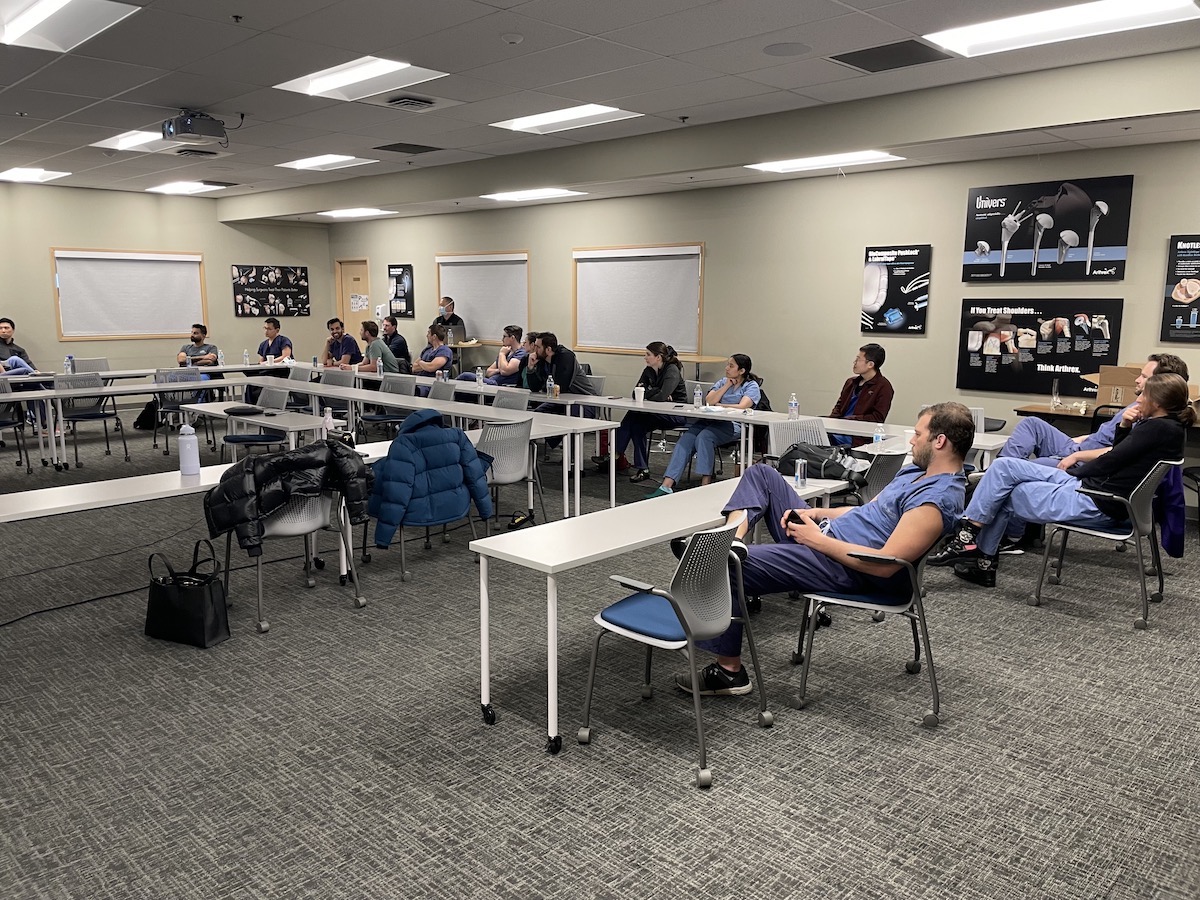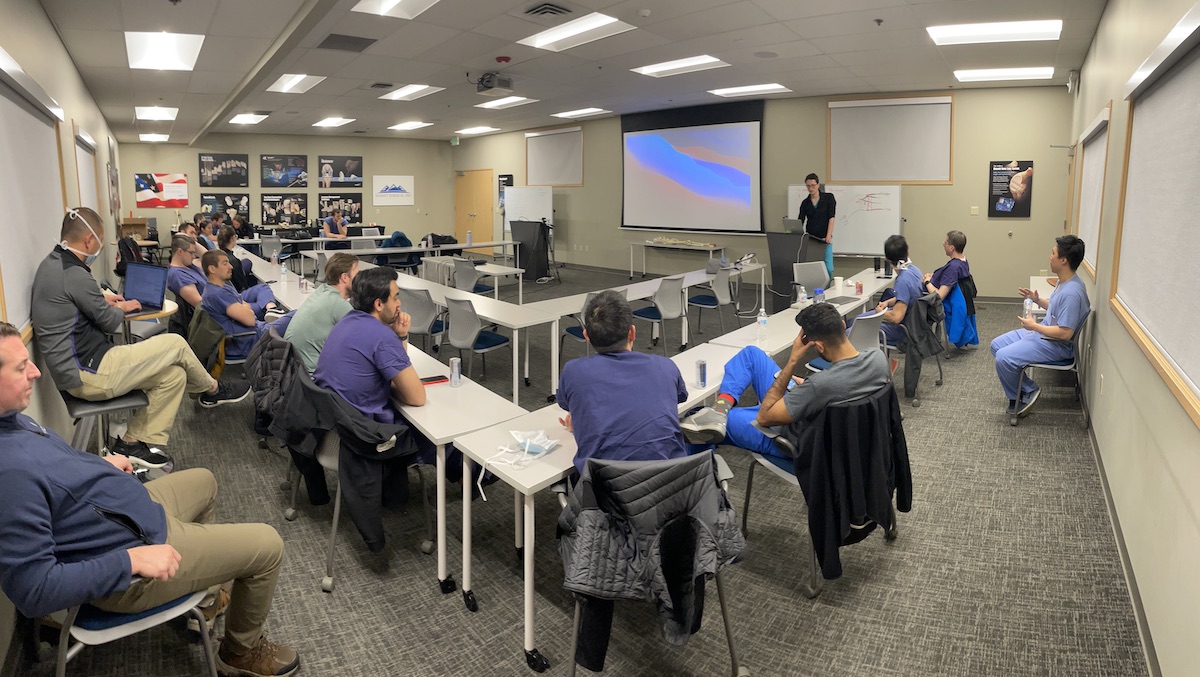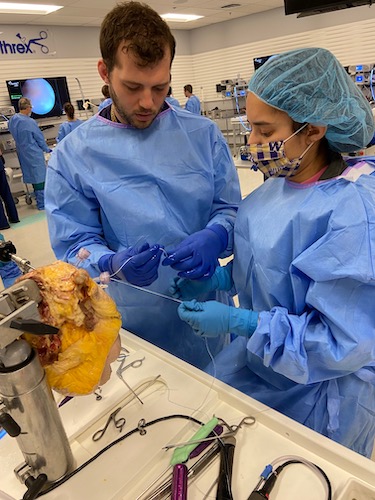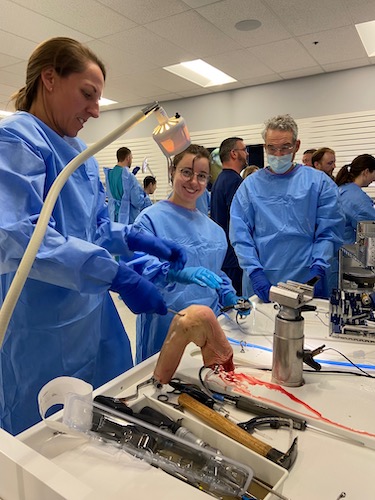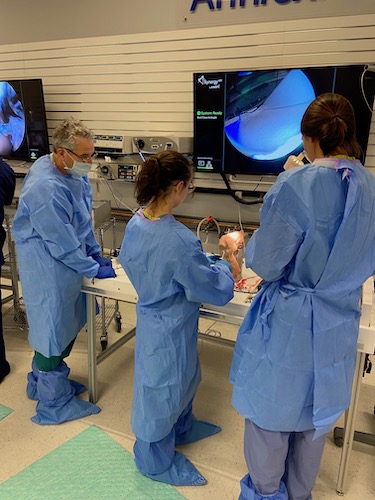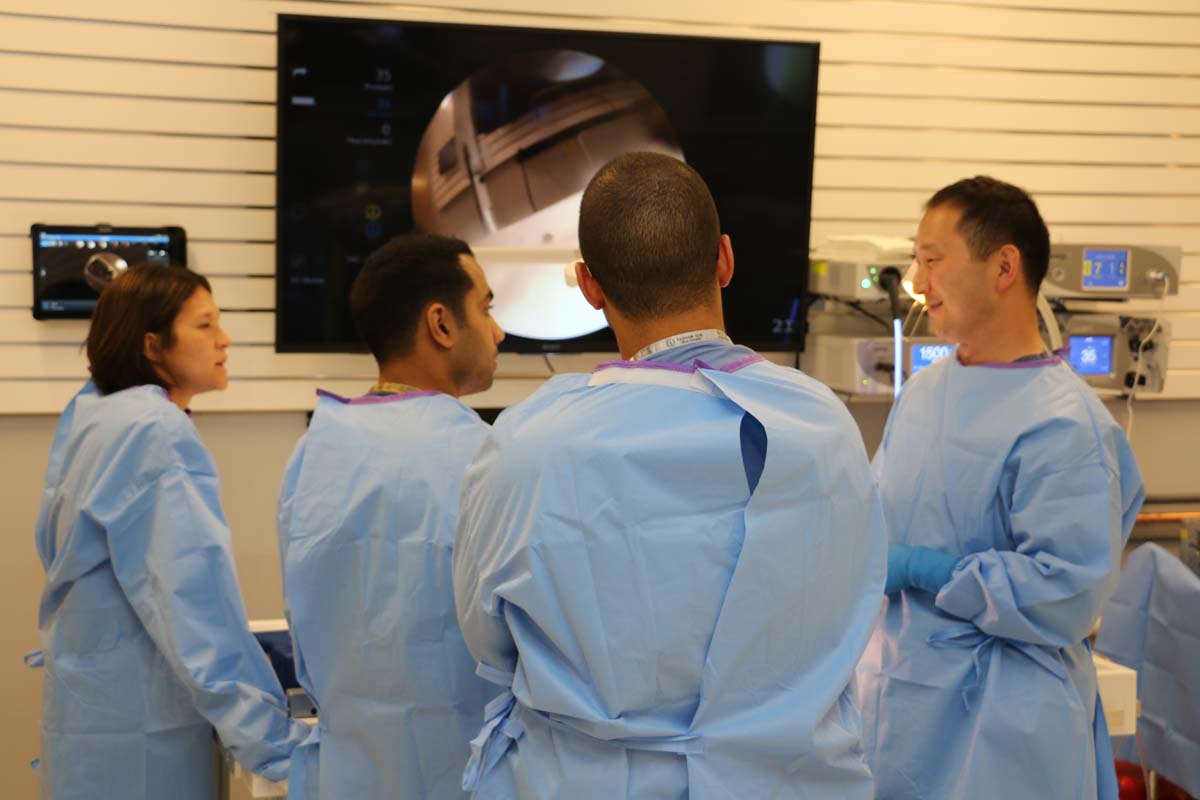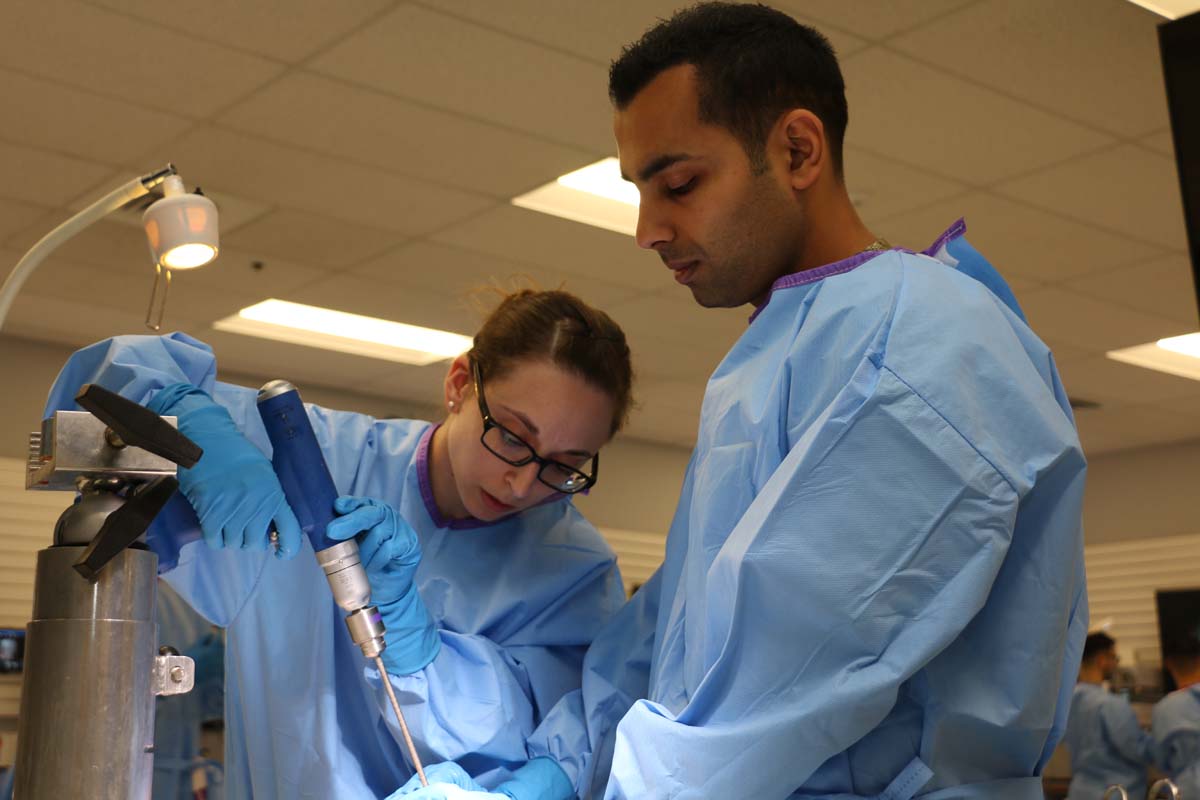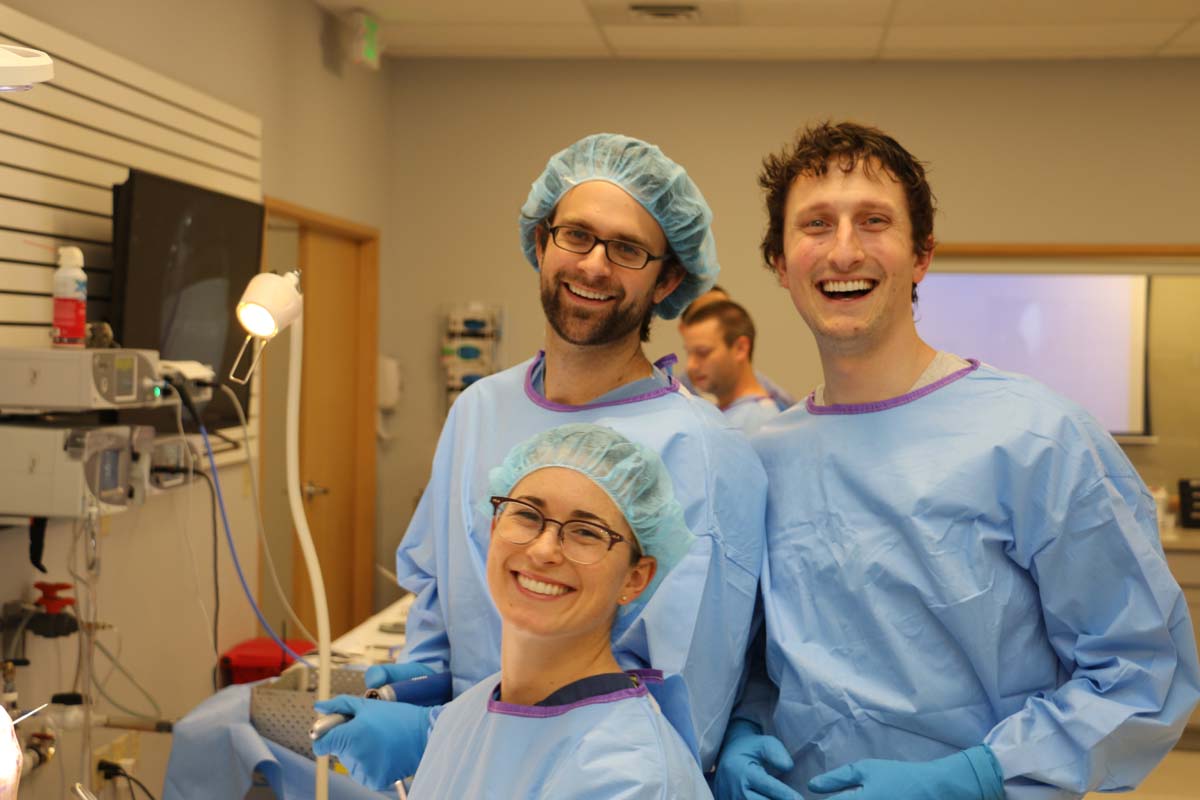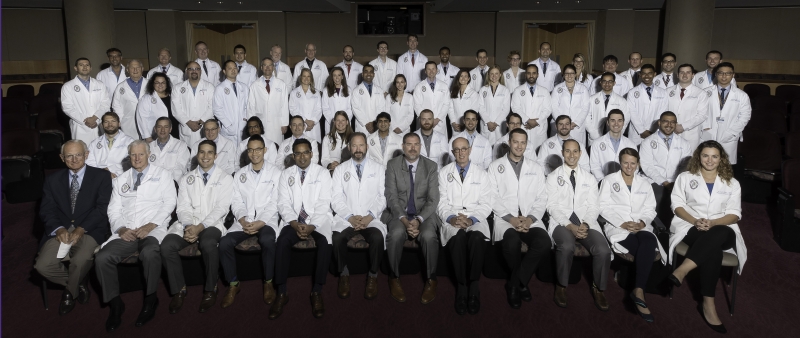
2016 Resident Research Day with Dr. Robert Zura
1. Grand Rounds (first Wednesday of the month):
The first Wednesday of each month an R4 or R5 presents a topic of their interest at grand rounds. View the Grand Rounds archive.
2. Resident Meeting (first Monday of month) and Monday Morning Didactic Conferences:
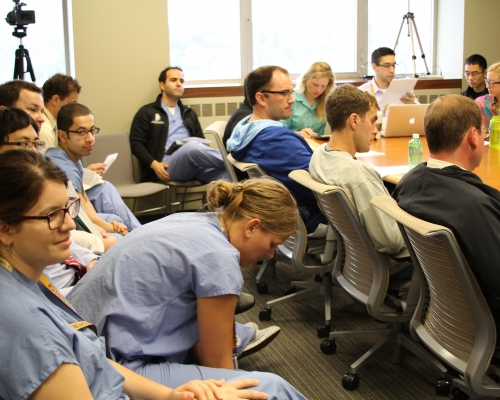
The monthly resident meeting is held the first Monday of each month with the Residency Director and Chair discussing issues pertaining to the residents and residency program. Every Monday morning (except the first Monday of the month) an attending gives a 2-3 hour lecture on a topic in their specialty. We also meet several times a year with an attending in the cadaveric dissection lab to review anatomy and surgical approaches. These conferences are mandatory for all residents.
3. Le Cocq Lectureship:
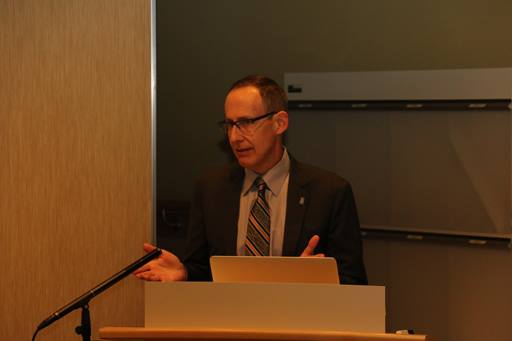
Lectureship Guest Professor
Each year a nationally recognized leader in orthopaedic surgery is invited to the Le Cocq Lectureship to offer their expertise and lead discussions after hearing resident case presentations. This lectureship was established to give residents the opportunity to present difficult and unusual cases to a renowned member of the orthopaedic community. It also brings the regional orthopaedic surgeons together to participate in orthopaedic education.
4. Resident Research Day:
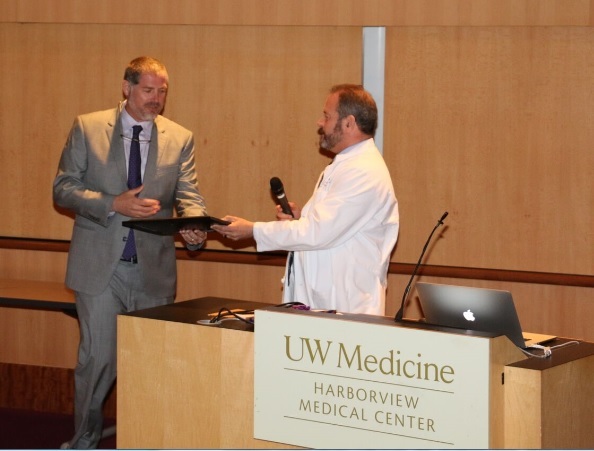
Professor, with Dr. Howard Chansky
Resident Research Day is an annual academic event that gives the chief residents an opportunity to present their research to a visiting professor and the Orthopaedic community. Awards are given for the best research projects and presentations. There are three awards available for up to $1,000 each depending on the number of awards granted. The Edwin Laurnen, M.D. Spine Award is granted to the best research project involving the spine. The Esther Whiting award is given for the best paper on a historical aspect of orthopaedics. The Victor Frankel Award is given for the best paper written by a member of the House Staff involving basic science.
5. Sub-specialty Conferences and Workshops:
The various sub-specialties within orthopaedics also have weekly conferences.
6. Annual Tumor Pathology Conference:
The annual tumor pathology conference is an excellent educational review of tumor pathology hosted by Dr. Ernest "Chappie" Conrad. It is attended by the R3s and R5s and also the R2 on the tumor service.
7. National Meetings:

R2s Colin Kennedy, Romie Gibly, Lauren Meyer
and Kariline Bringe with Dr. Milton Routt
The R2s attend an AO Basic Course. The R3s attend the AO or the OTA Fracture Review Course, the R4s attend the AAOS Annual Meeting, and the R5s attend a Board Review Course. In addition, there are opportunities to attend and present at national meetings.
8. Orthopaedic Residents Book and Educational Fund:
This fund is made possible by generous donations from alumni of the program. Each resident is given $600 each year to purchase books and educational materials.
9. Orthopaedic Workshop:
Before residents start their R2 year they attend the Orthopaedic Workshop for 2-3 days. During this course, you learn essential knowledge and skills for the R2 year including: basic principles of orthopedics, splinting, and fracture care.
10. Arthroscopy Course and Lab Simulator:
The University of Washington Orthopaedic Department is dedicated to improving the arthroscopy skills of residents. The R3s and R4s attend an Arthroscopy Course each year. Also, the Orthopaedic Department has purchased a computer simulator that allows residents to improve their arthroscopy skills. It also objectively measures your progress. In addition, there is an arthroscopy cadaver lab with state of the art equipment where residents can get hands on experience with arthroscopy. Please see a short video about our arthroscopy simulator.
Arthroscopy Simulator: One of 10 centers in the world using this advanced technology to help train the next generation of Orthopaedic Surgeons.
